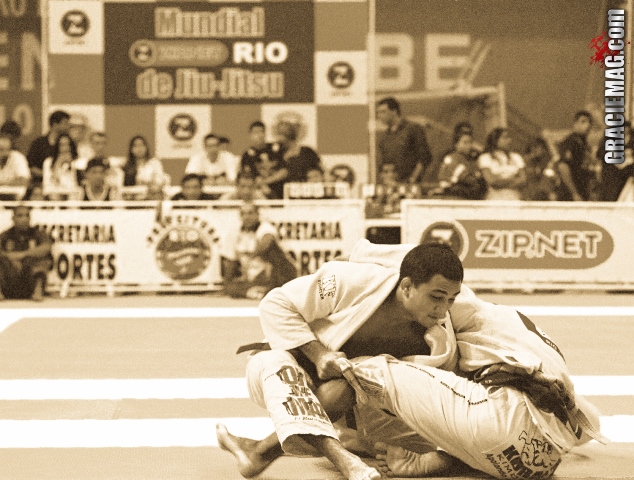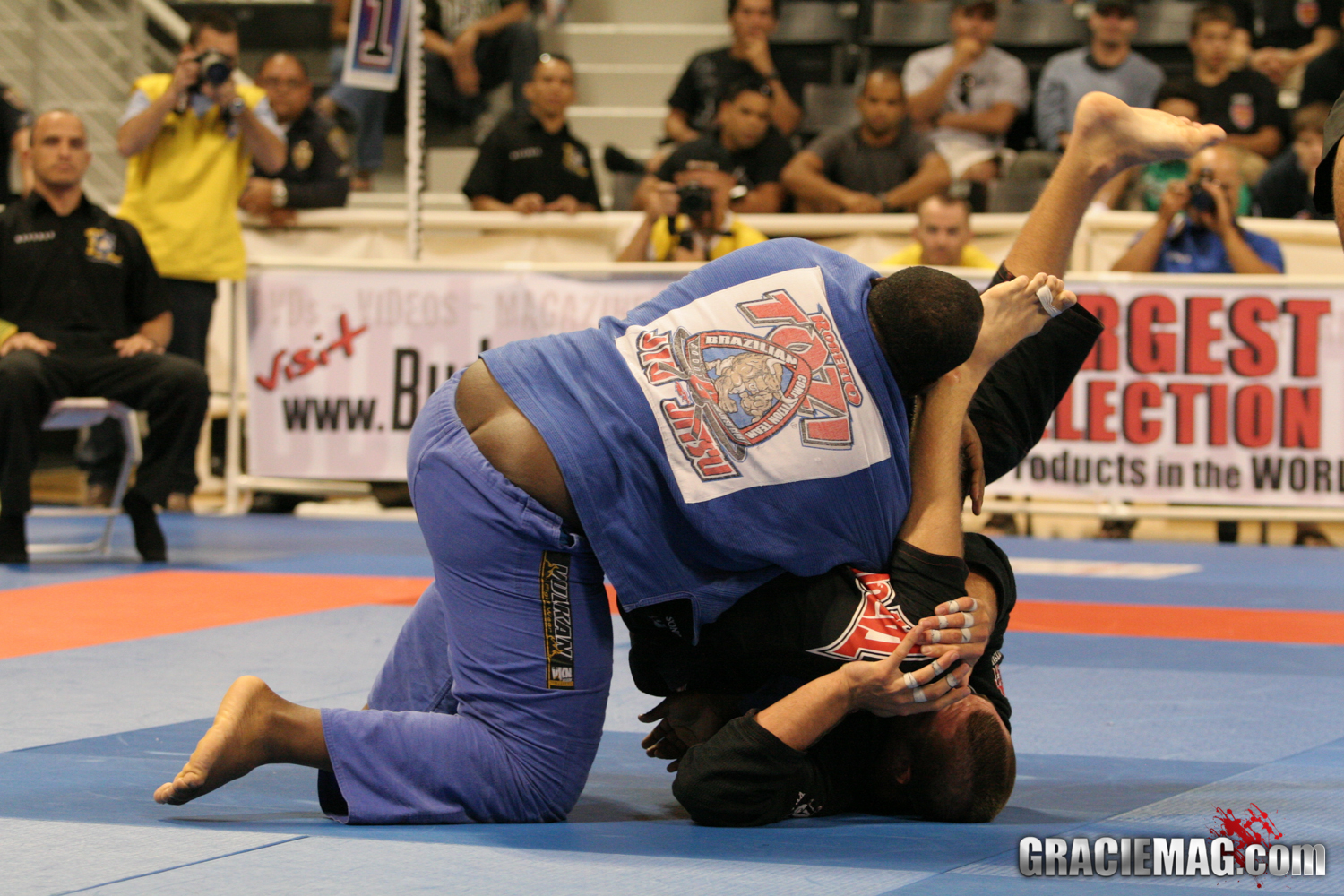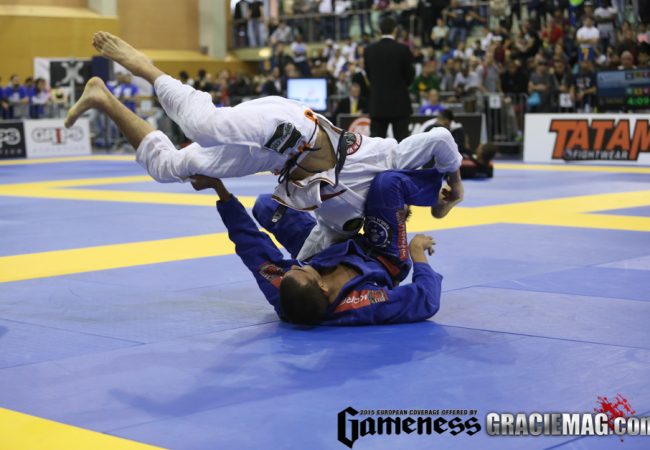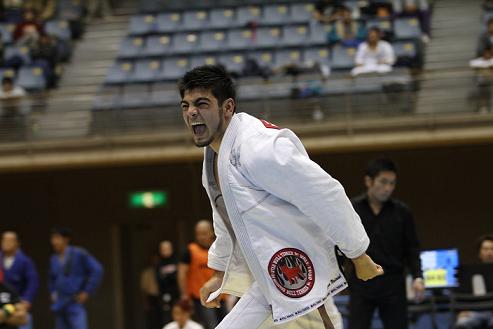“I remember at the time I said ‘So I was the first?!’ But with time I realized that it was important to win. Today I think that moment was one that changed my life. It was the first time I said to myself that I could win and I went and conquered.” With that phrase, B.J. Penn defined his historical win at the 2000 World Jiu-Jitsu Championship in Rio de Janeiro.
And to think that he was introduced to Jiu-Jitsu by Tom Callos only five years before that gold medal. Even so, it was only in 1997 that B.J. started taking Jiu-Jitsu seriously, when he started training with Ralph Gracie in Nothern California. There he stayed until he was a purple belt. His competition career went in only one direction: Up. He fought at the 1998 Worlds as a blue belt and got 2nd place. One year later, he was already a brown belt and came in third. His black belt came from the hands of Andre Pederneiras on July 21, 2000, only three weeks before the Mundials.
The Hawaiian, who later became a two-time UFC champion and an MMA legend, was also a pioneer. He was the first non-Brazilian to win a weight division among the adult black belt category. Besides his incredible talent, B.J. Penn also had fortune in his favor. In 2000, four-time featherweight world champion Royler Gracie, the only man up until that point in time to have won the division, decided not to compete. So, the featherweight was wide open. To get to the gold medal, Penn had no easy path. First he defeated Alexandre Soca, then Frédson Alves and finally Edson Diniz.
Here’s the full video of BJ’s final against Edson Diniz.
http://www.youtube.com/watch?v=WlSoO6IvAnw
Relentless Rafael
So we move seven years ahead in time. The setting now is the California State University in Long Beach in the famous Walter Pyramid. After 11 editions in Rio, its birthplace, the World Jiu-Jitsu Championship moved to the USA. At home, it was time for Americans to try to repeat Penn’s accomplishment.
And they did. Well, Rafael Lovato Jr. did.
Born in Cincinnati, Ohio, Lovato was influenced since an early age to be a martial artist. After experiences in jeet kune do, boxing and thai boxing, Lovato was introduced to Jiu-Jitsu by his father Rafael Lovato Sr. He became a black belt in 2004, joining his father at the rank.
The year of 2007 was a special one for Lovato Jr. Before the Worlds, he won the super-heavyweight division at the Europen Open, the Pan Championship and the Brazilian Nationals.
The gold medal at the Worlds also represented the Jiu-Jitsu Grand Slam for Lovato.
In Long Beach, he decided to compete at the ultra-heayweight division, probably to avoid an encounter with virtually unbeatable Roger Gracie (the super-heavyweight and absolute champion that year).
The strategy worked and soon Rafael saw himself in the final against Luiz Theodoro, otherwise known as “Big Mac.”
It was not a pretty match and Big Mac scored an advantage first with a near guard pass.
When things looked grim and the end was really close, Lovato tried an omoplata lock that granted him an advantage and tied the score.
Then, the referees gathered and decided that for the second time ever the gold medal of a black belt division in a World Championship would end up with an athlete not born in Brazil.
Rafael Lovato Jr. had completed his Jiu-Jitsu grand slam.
“Since the beginning of the year, I knew it was going to be my year. Last year, I couldn’t go to Brazil because I was too sick to travel. The final against Big Mac was hard. His body prevents you from doing a lot of things, but I tried that omoplata at the end and I knew that I would win because I tried to attack all the time,” said Lovato, as he walked off of the mat.
Here is a video by GRACIEMAG with an interview with Lovato and the highlights of the fight.
After reliving two thrilling chapters of the World Jiu-Jitsu Championship, don’t waste time. Register today for the 2013 Worlds.
Click here to enroll now!




